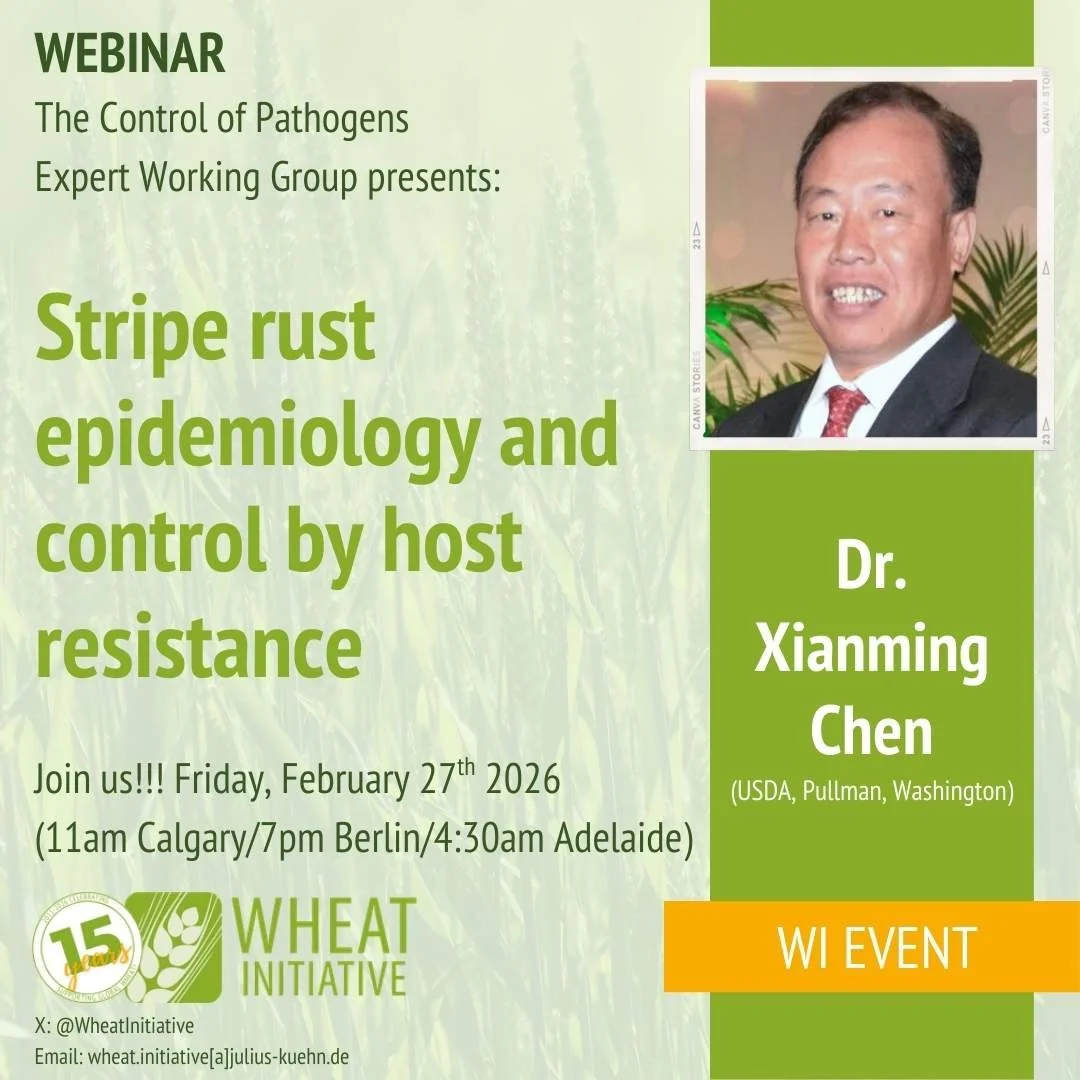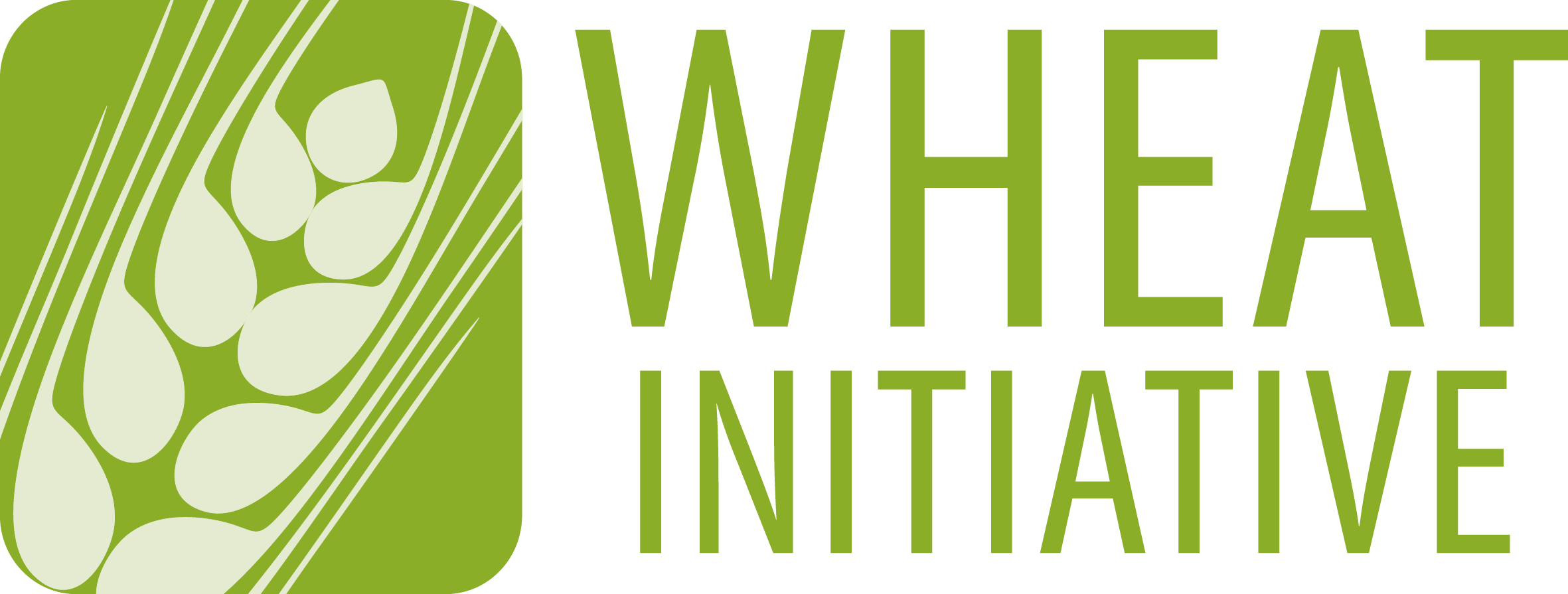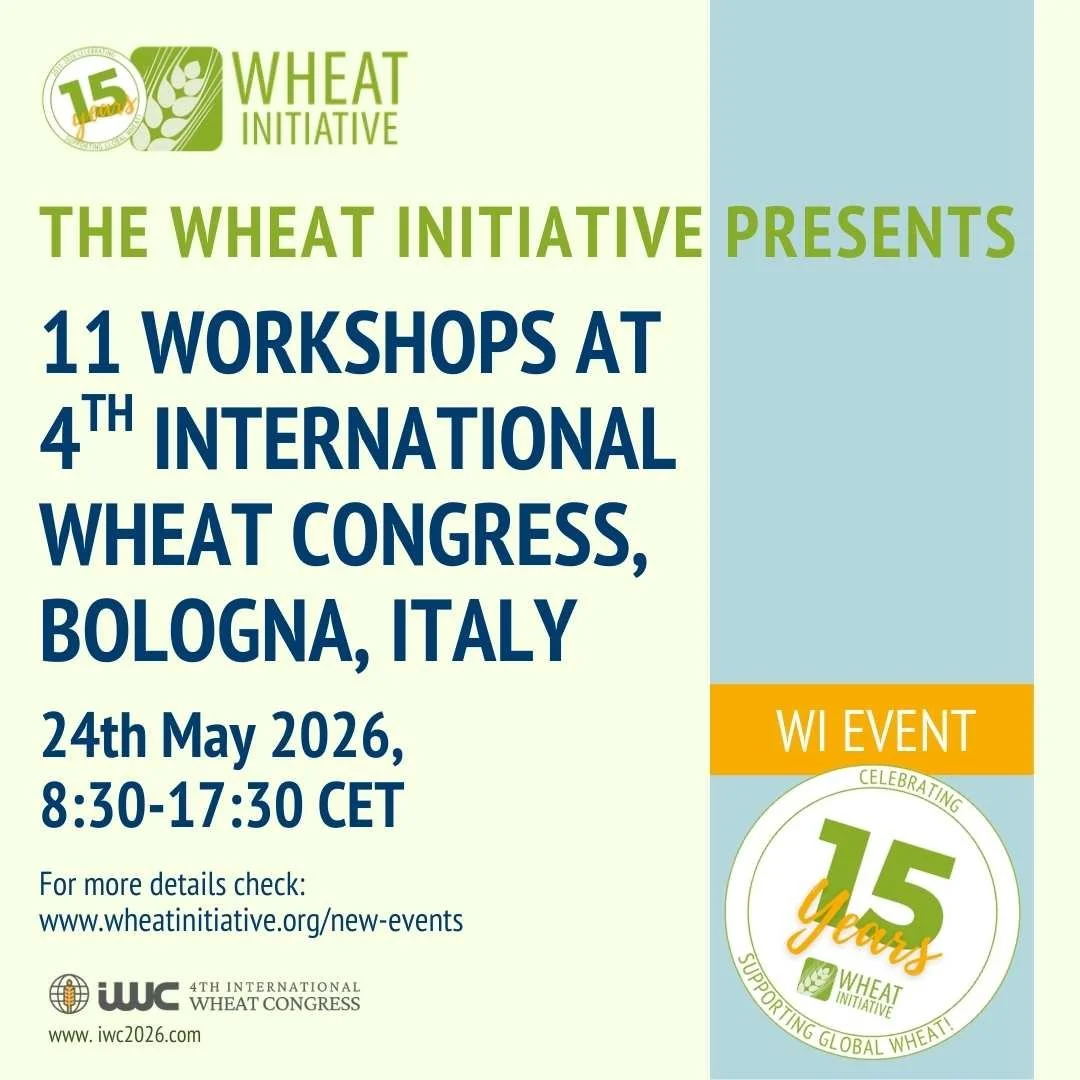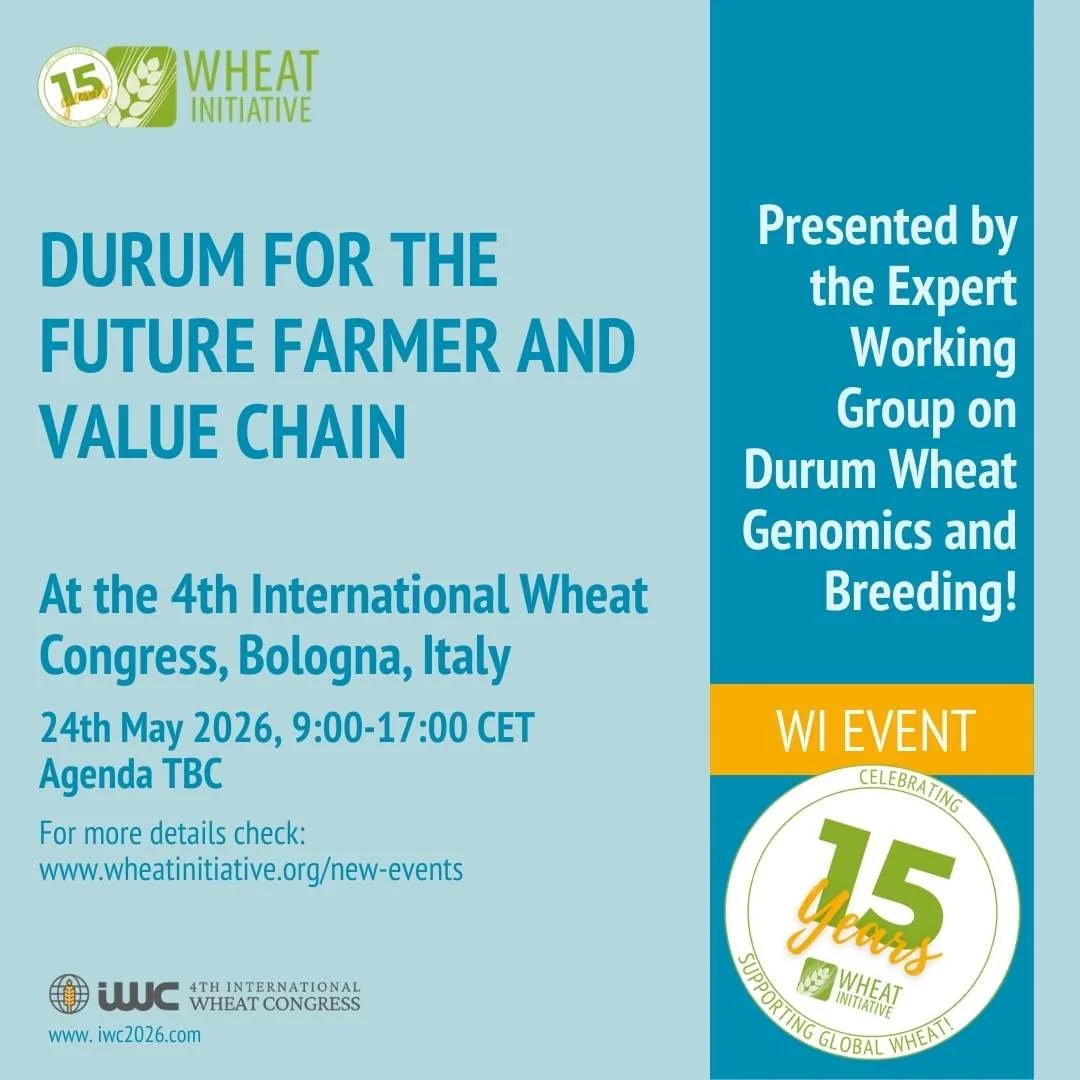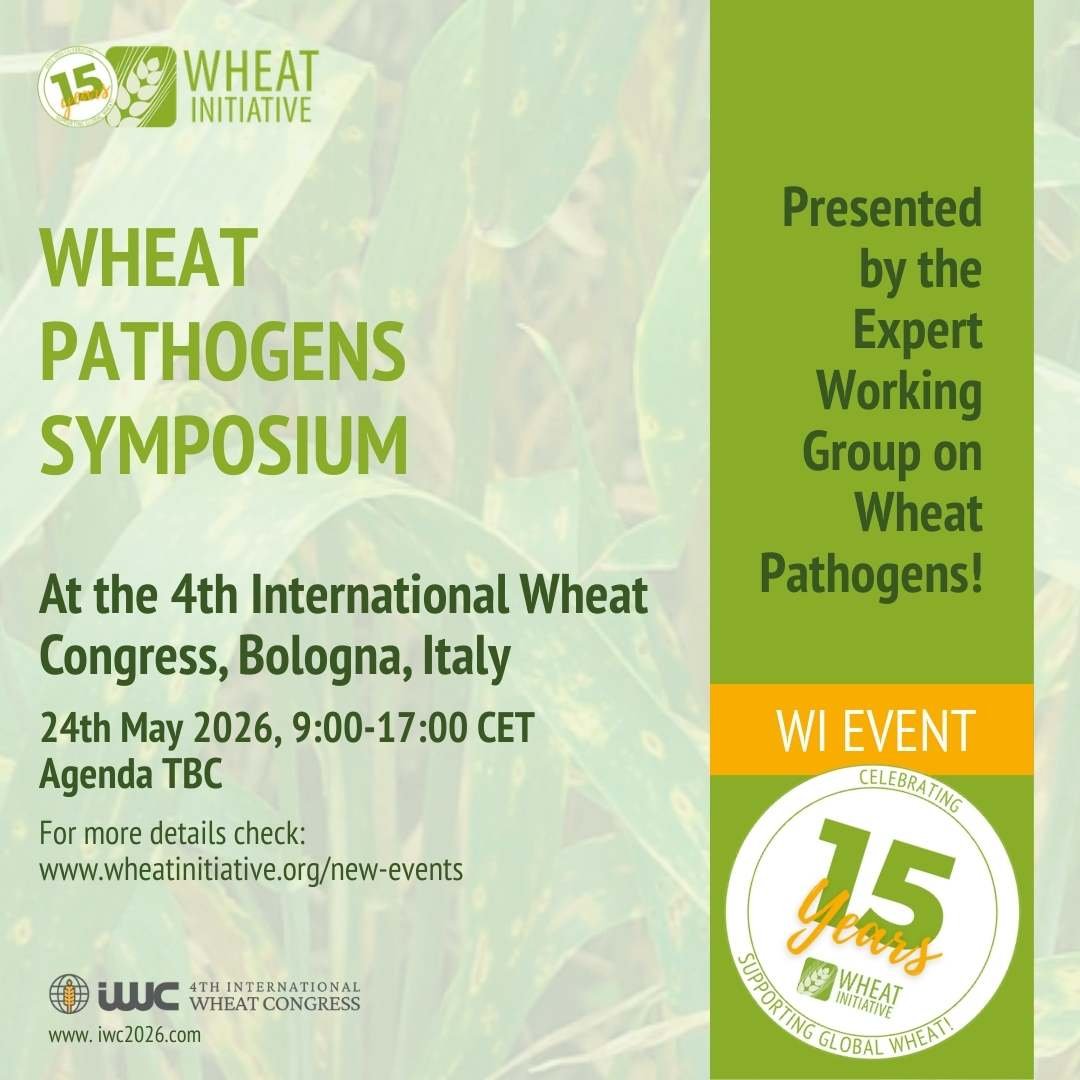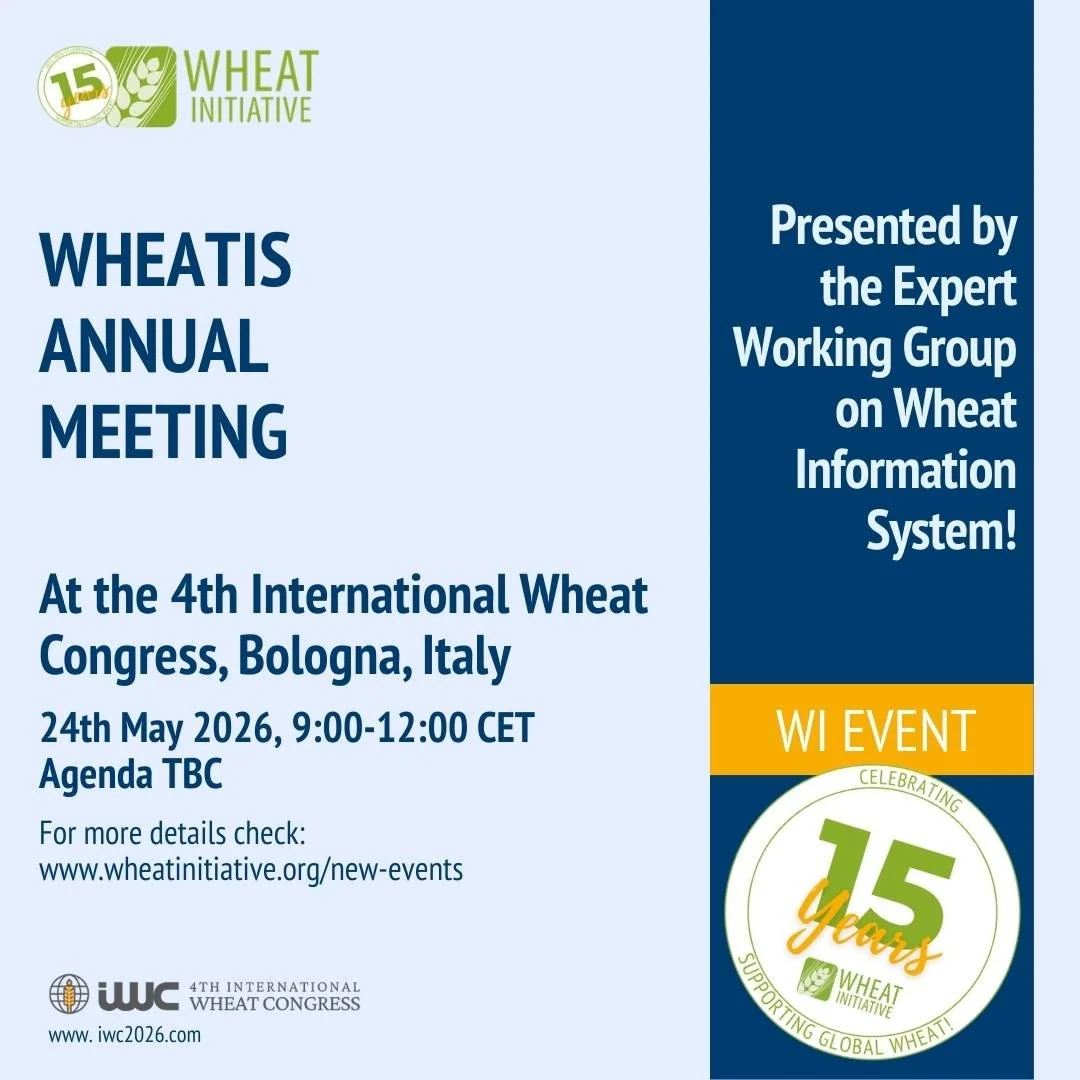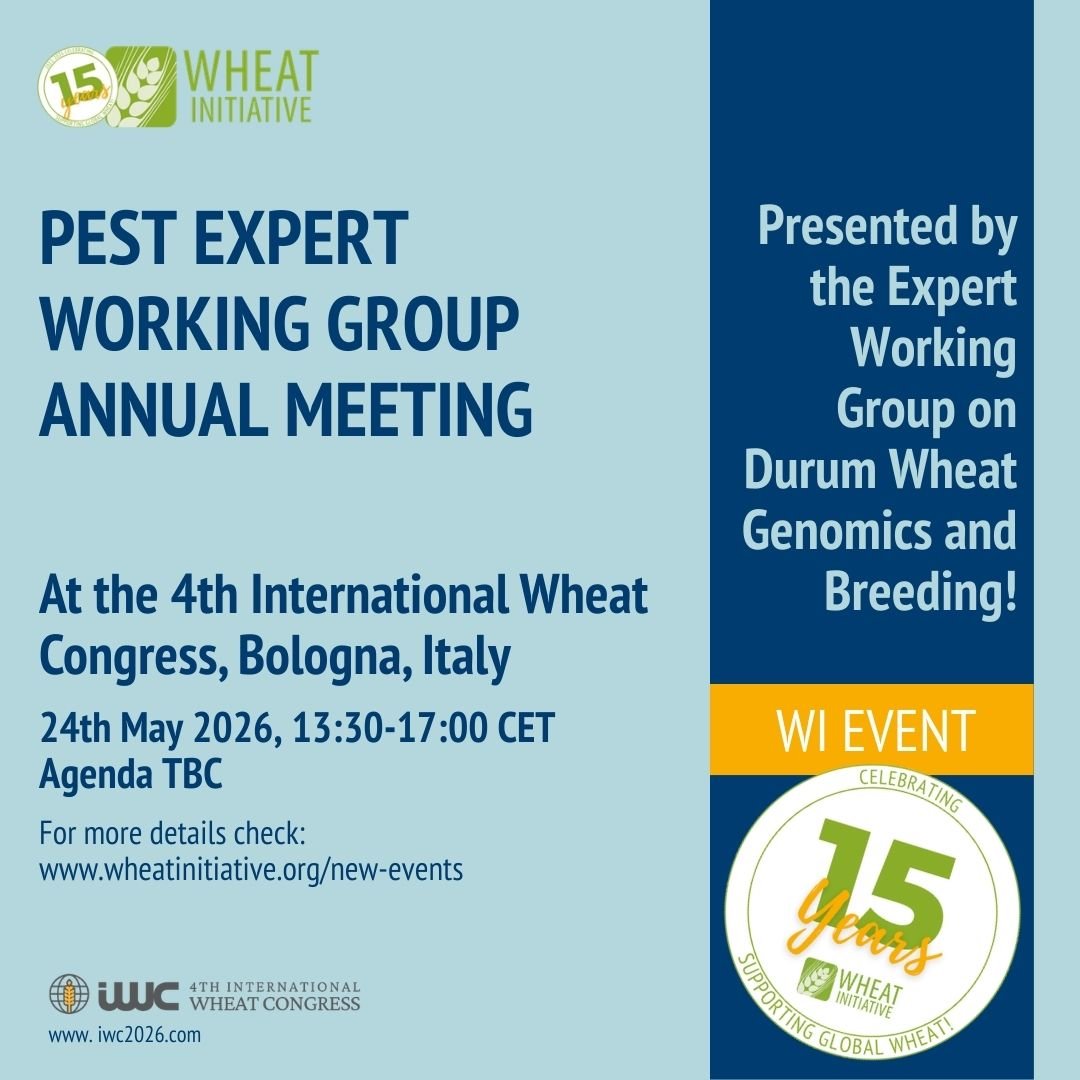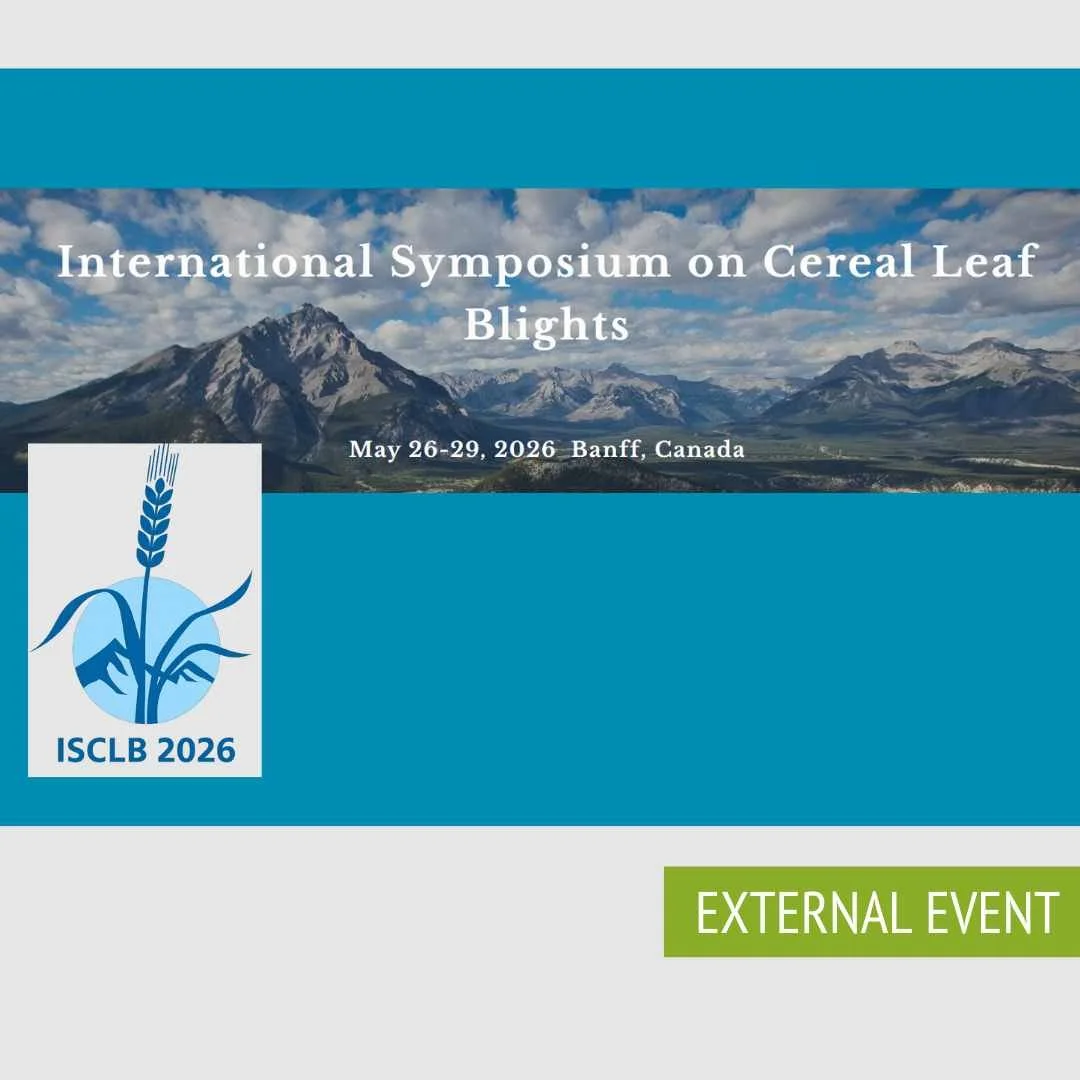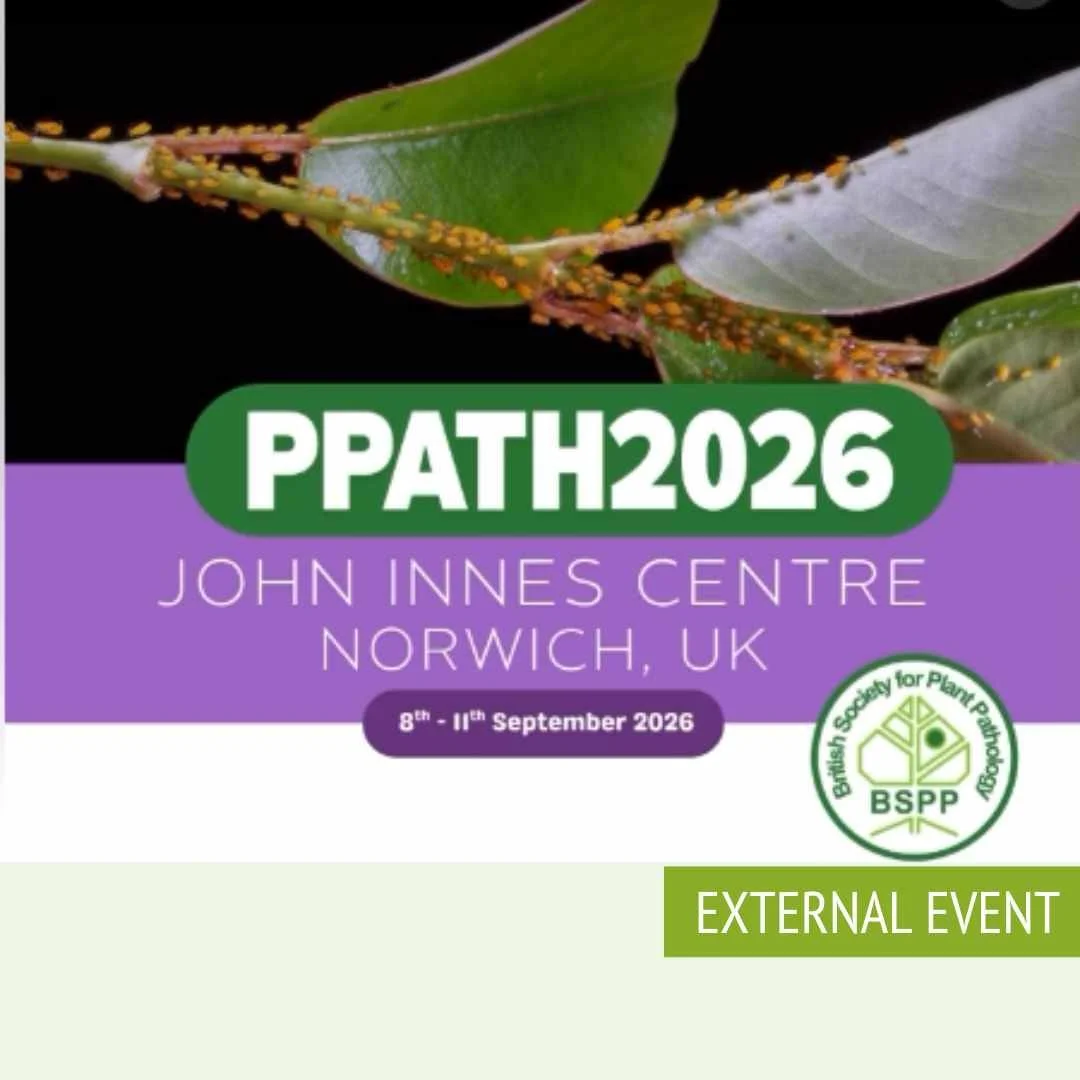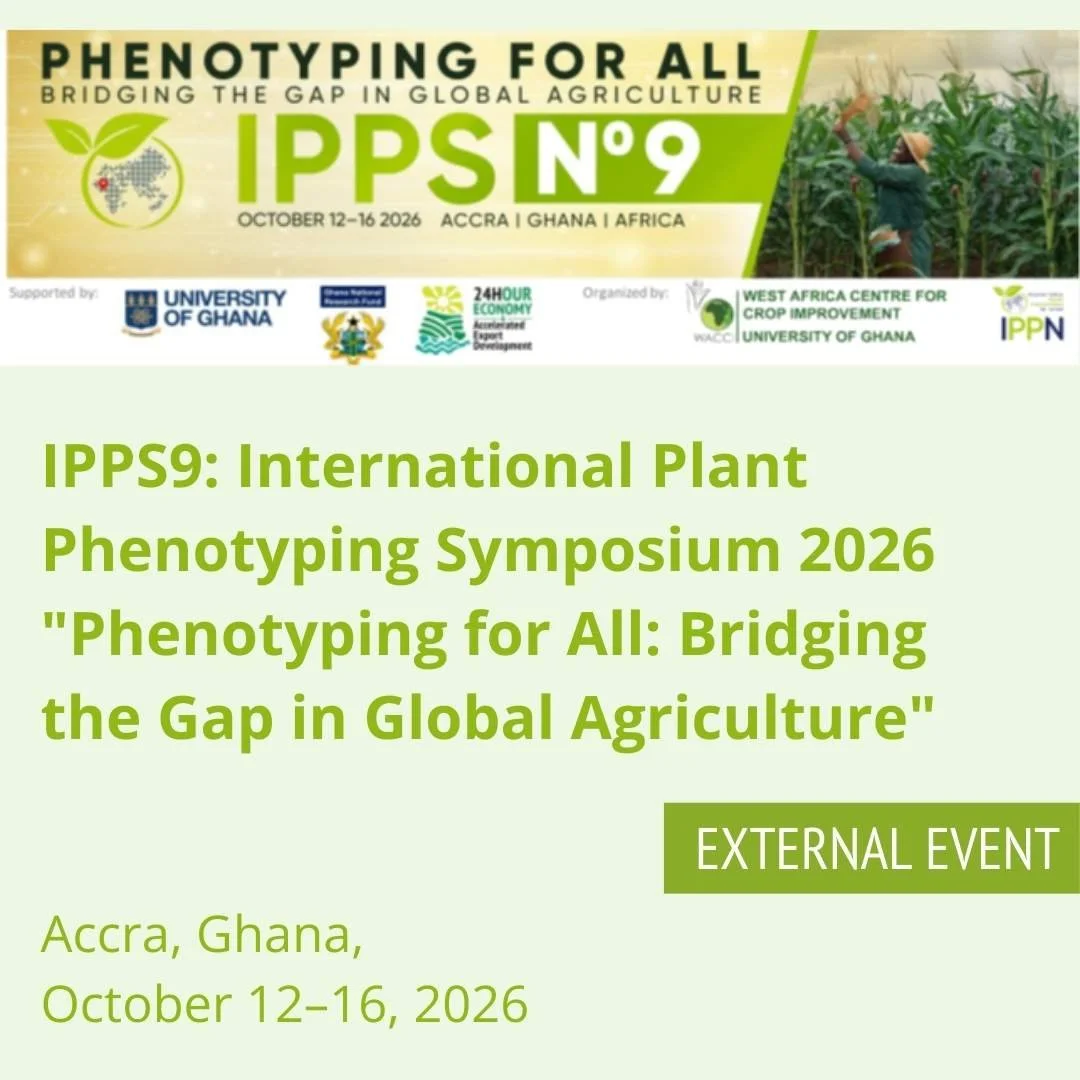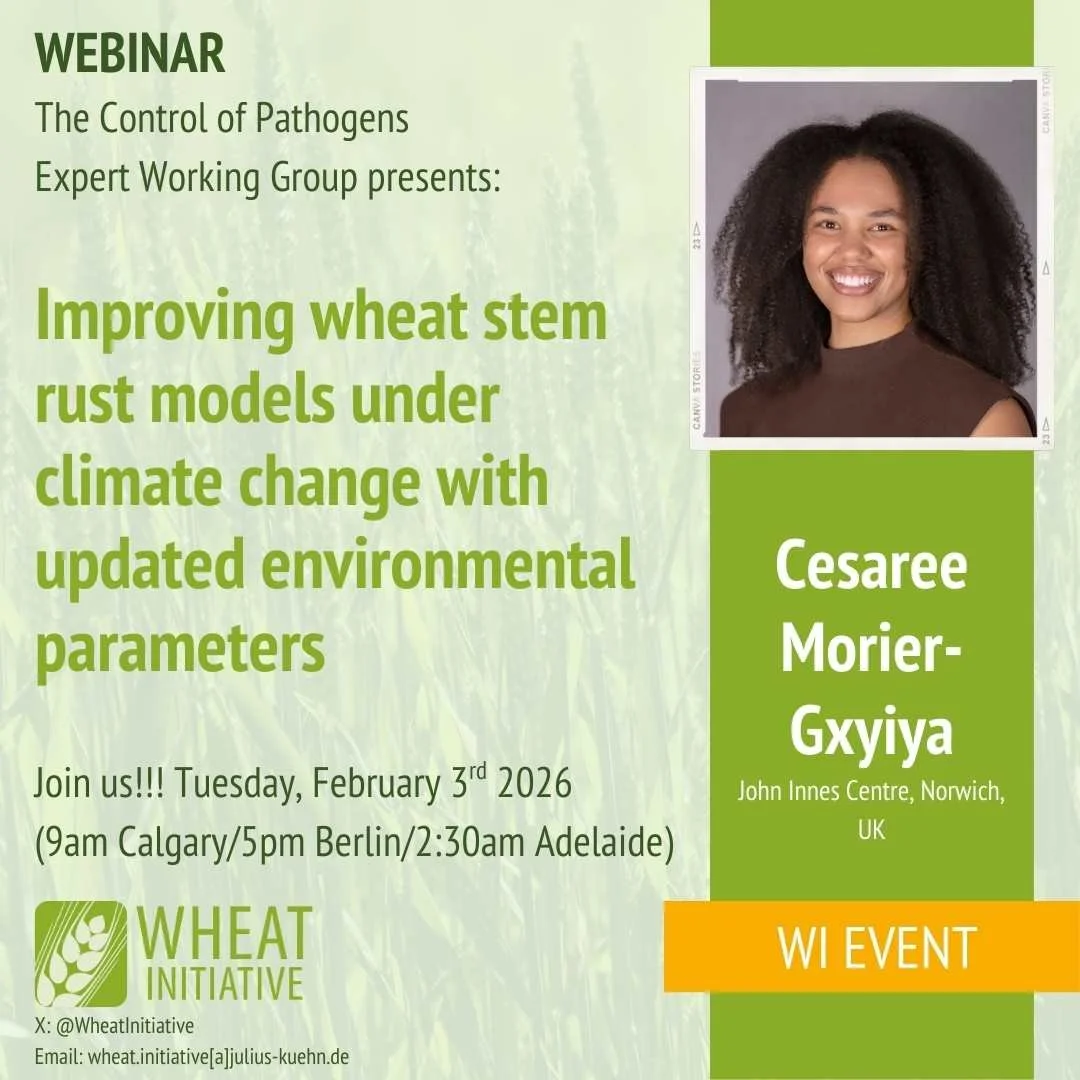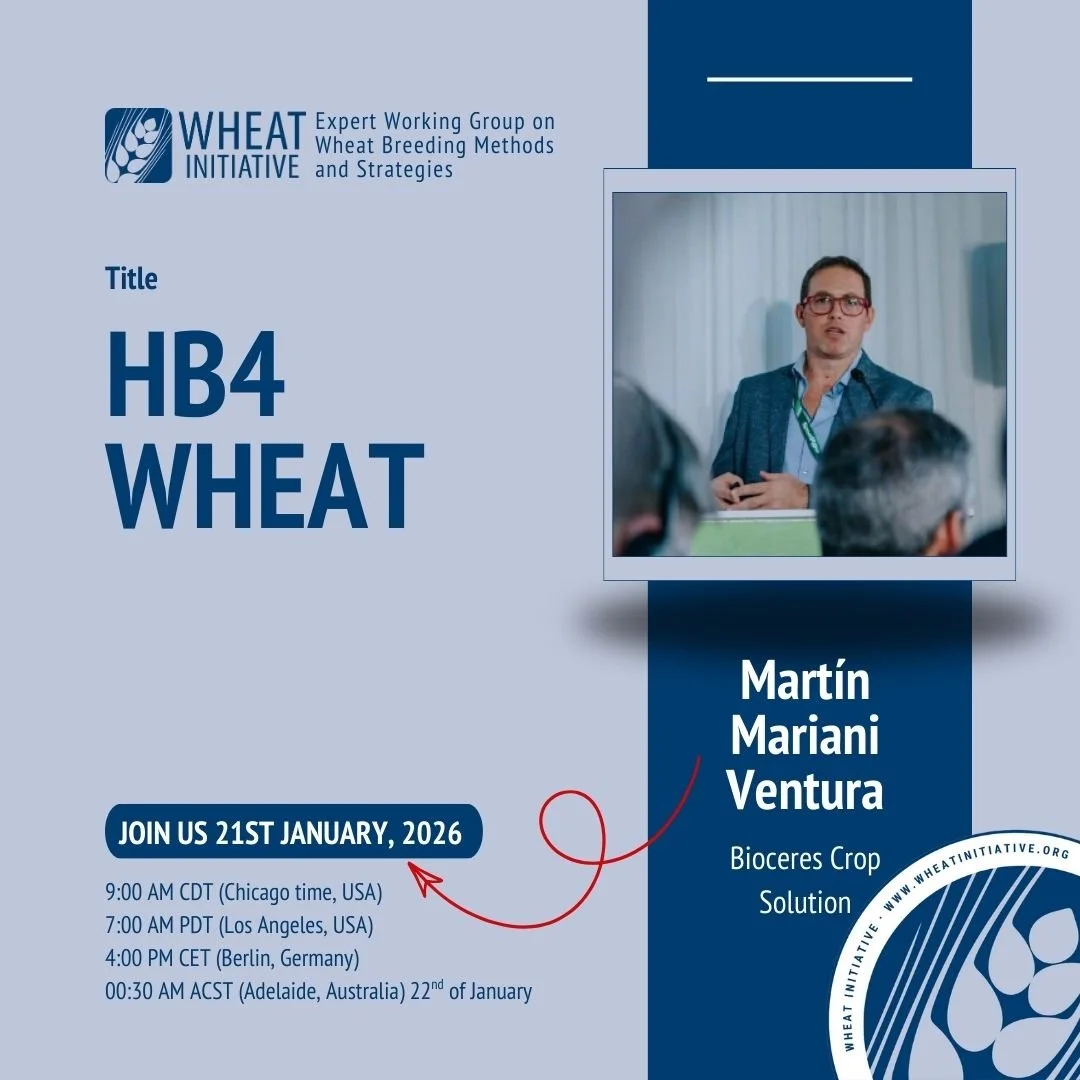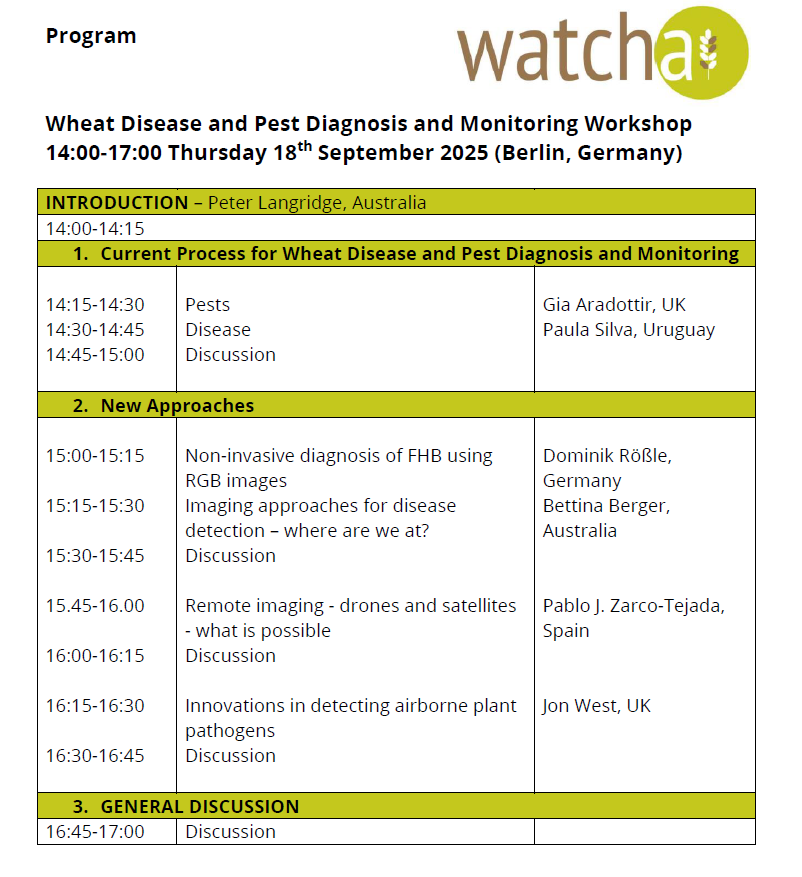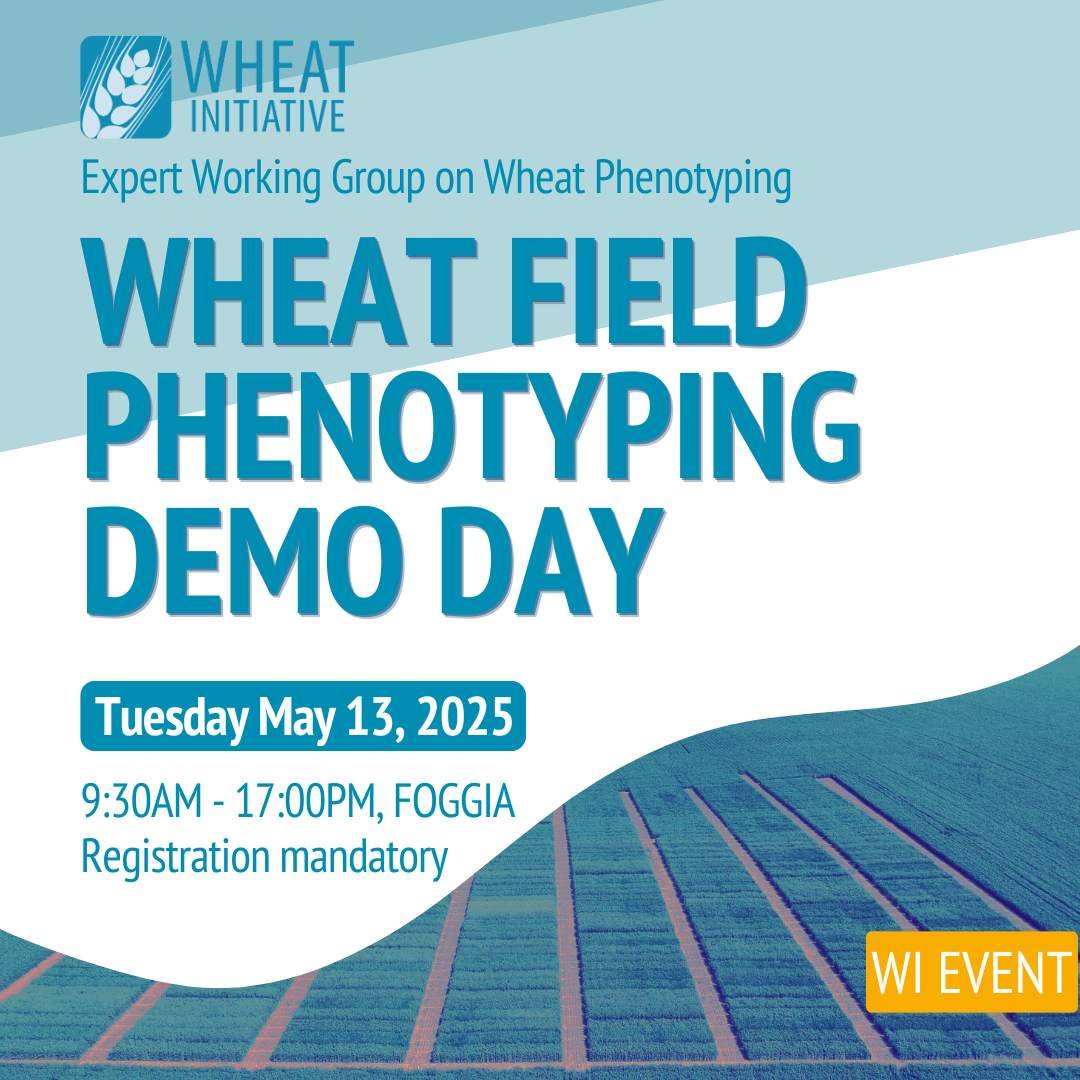Wheat Field Phenotyping Demo Day , Foggia, ITALY
Registration is mandatory before April 22, 2025 at this form https://forms.gle/QByVcyNiRVzTPfFaA
The Expert Working Group on Wheat Phenotyping is organising a Wheat Field Phenotyping Demo Day.
May 13, 2025
9:30- Welcome by Wheat Initiative, Institutional and Local Authorities
10:00-12:30 Field visit and hands-on phenotyping demonstrations:
Hiphen – (Patrizia Zamberletti) Overview of the Literal system, data acquisition in a wheat trial
CREA – (Fabio Fania) UAV phenotyping in practice
CNR/PlantBit – (Michela Janni) In vivo Sensing in practice
IRTA (Adrian Gracia-Romero) Low-cost phenotyping cereal traits using RGB images
YieldSystems (Jussi Gillberg) Video intelligence for scalable, accurate phenotyping
13:00-14:00 Light lunch
14:00-16:00 Data Analysis and management session (Hiphen, CREA, IRTA, YieldSystems)
16:00-17:00 Overlook on international Phenotyping initiatives:
IPPN (IPPN, Philip von Gillhausen)
EMPHASIS (EMPHASIS, Susie Robinson)
PHENET (INRAE, Bertrand Muller)
GlobalWheat (ETH, Andreas Hund)
PhenItaly (CNR, Silvana Moscatelli)
17:00 Wrap-up conclusions and transfer to city center (hotels, train/bus station)
Registration is mandatory before April 22, 2025 at link: https://forms.gle/QByVcyNiRVzTPfFaA
For any other further information: michela.janni(a)cnr.it , nicola.pecchioni(a)crea.gov.it
Organizing Committee:
Michela Janni, CNR
Nicola Pecchioni, CREA
Pasquale De Vita, CREA
Rossano Clementi, CREA
Daniela Pacifico, CREA
Fabio Fania, CREA
Ivano Pecorella, CREA
Patrizio Spadanuda, UNIFG, CREA
Wheat Initiative
Please register here before April 22, 2025 at this https://forms.gle/QByVcyNiRVzTPfFaA
